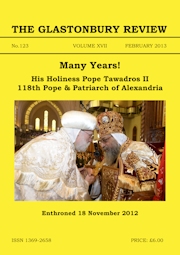Westminster School: 5 November 2012
Remember remember the fifth of November
Gunpowder, treason and plot.
I see no reason why gunpowder, treason
Should ever be forgot…
Perhaps it has something to do with childhood or a fascination with bonfires, but there can be few more memorable dates in Britain’s calendar than 5th November and it seems particularly appropriate here in Westminster on this day to recall to memory why it is so significant.
Had the Gunpowder treason plot succeeded the King, the entire royal family, all his ministers, the leading politicians, churchmen, judges, indeed almost everybody who was anybody, would have been blown to smithereens by the blast. A recent scientifically-controlled re-enactment by ITV demonstrated that it would have killed every person in the Palace of Westminster and that no-one within 330 feet of the blast could have survived. It is also certain that all of the stained glass here in Westminster Abbey would have been shattered.
As it was a carefully planned plot perpetrated by Englishmen against England it was clearly an act of treason and those responsible, once apprehended, were duly executed in the particularly barbaric manner of that time for despatching traitors; being hanged, drawn and quartered with their heads and body parts displayed on spikes above London Bridge and other prominent places. Yet for some Guy Fawkes and his co-conspirators were seen as martyrs for the Catholic Cause against an oppressive and intolerant Protestant government which for generations had fined and taxed Catholics, and in recent times had executed priests for ministering the Catholic sacraments. It is perhaps not without significance that since the showing of the dystopian thriller, V for Vendetta Guy Fawkes masks have became the symbol used by the ‘Anonymous’ and ‘Occupy’ groups as a symbol of resistance to perceived government oppression.
Apart from its discovery leading to the apprehension and execution of its ringleaders, the effect of the Gunpowder Plot was the exact opposite to what the conspirators had intended. Fear and suspicion of Roman Catholics escalated, and the laws against them, which imposed fines for not attending Church of England services, were enforced more rigorously than ever before. The loyalty of Catholics was regarded as questionable because they were suspected of being in league with foreign Catholic powers. Hence they were unable to sit in parliament, not allowed to go to university or to hold public office, civil or military. They became bogeymen, and during the Popish Plot, which was a fictitious conspiracy that gripped England in an anti-Catholic hysteria some 75 years later, known Catholics suffered. Enlightened attempts to ease the burden on Catholics merely led to widespread anti-Catholic demonstrations. Full equality was not finally achieved until Catholic Emancipation in 1829, some 224 years after the Gunpowder Treason Plot.
We may look back on our past history with a certain measure of distaste, from what we hope is a more tolerant perspective, but the truth is that the same spirit of extremism and intolerance is alive and well in 2012. Just though the grievances of Guy Fawkes and his supporters may have been, by our reckoning they are simply terrorists with a reckless disregard for human life. The memory of the attacks in New York on 9/11, the Mumbai bombings in 2008 and 2011 or the London bombings of 2005 remind us of the ever present threat resulting from fanatics with a cause.
Violence may appear to strike a powerful and significant blow at the time but it can, by its very nature, only be destructive. At the heart of the Christian Faith stands the message of our Lord Jesus Christ, “Blessed are the peacemakers, for they shall be called the children of God.” (Matthew V: 9) and “Love your enemies, bless them that curse you, do good to them that hate you, and pray for them which despitefully use you, and persecute you” (Matthew V: 43-48). Faced with an impetuous disciple, who rushed to defend him with a drawn sword, Christ warned against the destructive legacy of violence, “for all they that take up the sword shall perish with the sword” (Matthew XXVII: 51). Sadly, Christians have not always heeded the words of their Lord and history recounts many appalling acts of violence and inhumanity perpetrated in the name of religion.
The civil war, which is currently tearing Syria apart, began as the laudable desire to be free from an authoritarian government but the violence perpetrated by both sides, has sucked in a peaceful people and brought appalling death and destruction to the streets. Battles are no longer fought on open plains away from cities but in residential suburbs, once busy market places, street by street, house by house, with the carnage and debris of war scarring schools, hospitals, mosques and churches. The Orthodox Bishop of Aleppo observes, “Until recently, we only knew affection, tolerance and a healthy co-existence of the people in our blessed city. It is heartbreaking to helplessly witness Syrian cities, villages and hamlets becoming battlefields and their systematic obliteration. No one can raise the flag of victory over the heaps of such ruins and sacrilege.”
The Buddha also rejected violence, noting “This does not end hatred, but gives it room to grow…. The method of trying to conquer hatred through hatred never succeeds in overcoming hatred. But, the method of overcoming hatred through non-hatred is eternally effective. That is why that method is described as eternal wisdom. ”
The noted pacifist Gandhi who fought for Indian independence declared, “There are many causes I would die for. There is not a single cause I would kill for.”
Abba Seraphim

